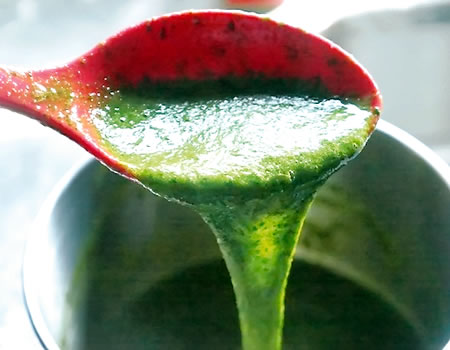Recent research highlights the potential benefits of Corchorus olitorius—commonly known as jute leaf or ewedu—in reducing complications associated with childbirth, particularly concerning high birth weight, known as macrosomia. This study, published in the Journal of Ethnopharmacology, offers new insights into the traditional use of ewedu for enhancing maternal and infant health.
Key Findings from the Study:
- Reduction in Birth Weight:
- The study found that jute leaf extract effectively reduced the birth weight of pups in a rat model without altering normal bodily functions. This suggests that ewedu may help manage excessive birth weight in humans, which is crucial for preventing complications such as prolonged labor, increased likelihood of cesarean sections, and birth injuries.
- Effects on Lipid Levels:
- Jute leaf extract was shown to decrease total cholesterol, triglycerides, and low-density lipoprotein (LDL) cholesterol while increasing high-density lipoprotein (HDL) cholesterol. This lipid-modulating effect may contribute to better overall health and reduced risk of complications during pregnancy.
- Safety and Toxicity:
- The extract was tested for toxicity in rats over a 28-day period, showing no significant adverse effects on crucial organs like the liver and kidneys. This safety profile is important for considering its use in human pregnancies.
- Historical and Traditional Uses:
- Traditionally, ewedu has been used in Nigerian culture for various health benefits, including easing labor and treating anemia due to its iron and folate content. The study reinforces these traditional uses by demonstrating that ewedu can help manage weight issues, which is critical for a smooth childbirth process.
- Mechanisms of Action:
- Previous research supports that ewedu has analgesic and anti-inflammatory properties, contributing to reduced muscle contractions in the womb. This effect can alleviate pain and facilitate easier childbirth.
Implications for Maternal Health:
- Prevention of Complications:
- By managing high birth weight, ewedu may reduce the risk of complications such as cesarean deliveries and severe bleeding, which are associated with macrosomia.
- Natural Alternative:
- Given concerns over the side effects of synthetic drugs, the use of plant-based remedies like ewedu provides a safer alternative for managing health issues during pregnancy.
- Integration into Prenatal Care:
- Incorporating ewedu into dietary recommendations for pregnant women may support better birth outcomes and align with traditional practices that value its health benefits.
Conclusion:
Ewedu (jute leaf) demonstrates significant potential in preventing complications during childbirth by managing excessive birth weight and supporting overall maternal health. Its traditional uses are supported by modern research, offering a natural and effective approach to improving pregnancy outcomes. As always, further studies are needed to fully understand its benefits and integrate them into clinical practice for safer childbirth.
